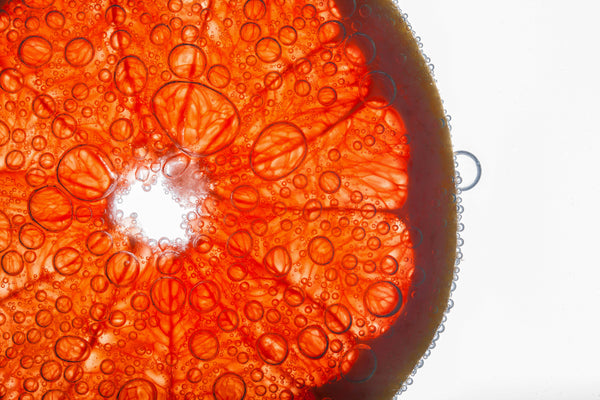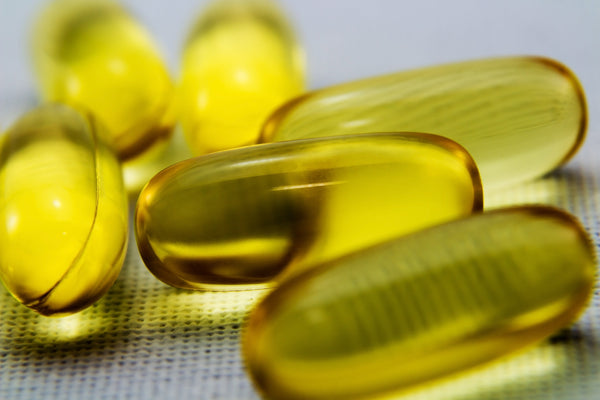Dietary Fiber has a myriad of health benefits .While not common, it’s possible to eat too much fiber, especially for people who are following plant-based diets such as vegetarian, vegan, or raw foods diets. You can also experience discomfort from eating too much fiber if you eat a lot more in a day than you normally do.
But in what amount should fiber be consumed? How much fiber is the right amount? Let's dive deep into the benefits of fiber and its ideal amount.
What is Fiber?
Dietary fiber is the portion of plant food that the human digestive system cannot digest. Fiber is essential for regular bowel movements, cholesterol and blood sugar management, healthy gut, and preventing chronic disease, among other functions. Let's talk about them in detail.
Benefits of Fiber
Helps Lower Cholesterol and Glucose Levels
Fiber (soluble) can help lower cholesterol and glucose levels by slowing down the passage of food from your stomach to the intestine. It is found in oats, beans, fruits, vegetables, etc.
Soluble fibers help slow down the passage of food from the stomach to the intestine by acting like a sponge that holds onto some of what you eat until it reaches its destination (your intestines). This helps prevent fat from being absorbed into your bloodstream too quickly—and therefore lowers LDL (bad) cholesterol levels.
Prevent Constipation
Fiber is found in whole grains, nuts, seeds, and vegetables and is insoluble, which makes your stools bulkier and easier to pass, preventing constipation.
Insoluble fiber may also help you avoid hemorrhoids (inflammation of the blood vessels in or near the anus). This can help prevent painful bowel movements when there are too many irritating chemicals in your system.
Helps Maintain Healthy Weight
Foods rich in fiber usually make you feel full for longer and eat less which means less calorie intake, thereby supporting a healthy weight.
But if you are trying to lose weight or get healthier overall—or both—you must consistently consume dietary fiber with diet and lifestyle modifications to get the best results.
How much fiber should you consume?
Despite the many health benefits of fiber, you can still have too much of a good thing.
Consumption of 40g/200kcal is considered a safe amount for fiber. Ideally, women should consume around 21-25 grams of fiber each day, and men should go for 20-38 grams per day. If it is a challenge to fulfill the requirement by diet alone, then adding fiber supplement would be advisable.
If you drastically increase fiber, your digestive system isn’t ready for it, and you end up with symptoms of too much fiber like bloating, gas, and constipation.
Intake of water should be increased to 2-3liters per day when taking a fiber supplement in order to prevent further digestive discomfort.
Signs You are Consuming Too Much Fiber
Let us discuss some signs or symptoms that show you might be taking more than enough fiber in your body: -
-
Bloating
-
Gas
-
Feeling too full
-
Constipation or diarrhea
-
Stomach cramps
-
Upset stomach
-
Loss of appetite
-
Dehydration
Excessive Fiber Relief
If you consumed too much fiber and are experiencing uncomfortable side effects, consider the following tips to help relieve your discomfort:
-
Drink plenty of water.
-
Avoid dehydrating beverages like coffee, aerated drinks, etc.
-
Avoid high fiber foods.
-
Stop taking any fiber supplements.
-
Limit fiber-fortified foods.
-
Take a walk, light physical activity may help stimulate bowel activity.
-
Maintain a food diary to track the fiber intake
Your symptoms resolve later that day or after a couple of days, depending on the quantity of fiber consumed. It can be a challenge to shortlist the best fiber supplement for you, read our blog on what to look for in a fiber supplement
Why Should You Go for Daily Fiber?
Daily Fiber is a pre-biotic fiber supplement and is safe for both adults and kids. It consists of 7gm of fiber with 17 superfoods with the goodness of fruits, spices, legumes, and all the nutrients. Some of its main ingredients include: -
-
Organic Inulin from Chicory root
-
Fructo-oligosaccharides (FOS)
-
Apple Pectin
-
Organic pea hull fiber
-
Oats fiber
-
Curcumin and several other beneficial and healthy ingredients.
Prebiotic Daily Fiber is an excellent source of soluble fiber. It nourishes and promotes the growth of good gut bacteria, ensures digestive wellness, boosts immunity and heart health.
Daily Fiber may also be useful in lowering cholesterol, weight loss, and treating type 2 diabetes by lowering insulin resistance.
Daily Fiber supplement is deliciously flavored and easy to add to your daily regimen. You can just add one sachet of the fiber powder to a glass of cool water. Stir well and mix. Your drink is ready.
Wrapping Up
While fiber can offer you numerous benefits, it's advised to consume it in the right amount. Only then you'll be able to experience the benefits and ward off the side effects. However, you can opt for supplements such as Daily Fiber offers you the right dietary fiber along with numerous benefits.
References
-
Barber TM, Kabisch S, Pfeiffer AFH, Weickert MO. The Health Benefits of Dietary Fibre. Nutrients. 2020 Oct 21;12(10):3209. doi: 10.3390/nu12103209. PMID: 33096647; PMCID: PMC7589116. https://www.ncbi.nlm.nih.gov/pmc/articles/PMC7589116/
-
Lattimer JM, Haub MD. Effects of dietary fiber and its components on metabolic health. Nutrients. 2010 Dec;2(12):1266-89. doi: 10.3390/nu2121266. Epub 2010 Dec 15. PMID: 22254008; PMCID: PMC3257631. https://www.ncbi.nlm.nih.gov/pmc/articles/PMC3257631/
-
Howarth, N. C., Saltzman, E., & Roberts, S. B. (2001). Dietary fiber and weight regulation. Nutrition reviews, 59(5), 129–139. https://doi.org/10.1111/j.1753-4887.2001.tb07001.x
-
Swann, O. G., Kilpatrick, M., Breslin, M., & Oddy, W. H. (2020). Dietary fiber and its associations with depression and inflammation. Nutrition reviews, 78(5), 394–411. https://doi.org/10.1093/nutrit/nuz072
-
Bliss DZ, Savik K, Jung HJ, Whitebird R, Lowry A. Symptoms associated with dietary fiber supplementation over time in individuals with fecal incontinence. Nurs Res. 2011 May-Jun;60(3 Suppl):S58-67. doi: 10.1097/NNR.0b013e3182186d8c. PMID: 21543963; PMCID: PMC3400503. https://www.ncbi.nlm.nih.gov/pmc/articles/PMC3400503/

























